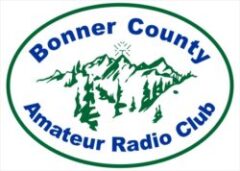
Local Groups, Parts, Supplies, & More
Trying to find a local group, parts manufacturer, vacuum tube supplier, or something else? Maybe this will help. The information on this page is provided as a courtesy to the Amateur Radio community.
Disclaimer: BCARC does not endorse, recommend, or receive any royalties from any vendor or site listed below and has not verified any information provided from other sites for the purpose of this listing. BCARC takes no responsibility for the accuracy of information listed on these sites or your transactions with them.
Local sites, emergency groups, and a couple of useful sites are listed first followed by a general listing.
Local Sites/Groups
Regional Radio Clubs:
- BARC – Boundary Amateur Radio Club – W7BFI
- EWARG – Eastern Washington Amateur Radio Group
- IEVHF – Inland Empire VHF Club
- KARS – Kootenai Amateur Radio Society
- KBARA – Kamiak Butte Amateur Repeater Association
- North Idaho Repeater Group
Emergency Groups and Agencies:
Useful Links
- AMSAT – Everything about satellite radio
- DXZone – website potpourri of amateur information.
- eHam.net – Good product reviews by other hams.
- Ratpack – Radio Amateur Training Planning and Activities Committee: free programs and training for almost everything in Ham radio for all license levels.
- Rig Reference – a good site for checking makes. models, and manufacturing dates of radios.
General listing:
A
- Advanced Specialties Electronics – New Jersey dealer with a wide range of communications products.
- AES – Amateur Electronic Supply, Full-service Amateur Dealer with several national locations
- Alfa Radio – Alberta, Canada full service dealer of Amateur gear and more.
- Amateur Television Quarterly – Publication dedicated to Amateur Television and SSTV
- American Morse Equipment – Keys, paddles, keyers, etc.
- American Radio Supply – Top Quality Radio Parts
- Antenna Store – All types of Military Antennas, Amateur Radio Antennas, Mobile Radio Antennas, GPS Antennas, Satellite Antennas, WLAN/Wi-Fi/WiMax Antennas, Cell Phones, TV, HDTV Antennas available and sold at antennas.us store.
- Antennas & More – Antennas and Solar power systems – Provo, UT dealer
- Antique Electronic Supply – Supplier of Vacuum Tubes & radio repair parts.
- Antique Radio Classifieds – Info on antique radios plus many links to collector sites.
- Array Solutions – Antenna switches, phasing systems, stacking systems, towers, antenna masts, antennas, radio contesting products, wattmeters.
- Associated Radio – New and Used Amateur Radio Gear
B
- Bencher – Manufacturer of Amateur Radip paddles, keys, antennas and filters
- Bob’s Electronics – Iowa dealer; Sales & service of commercial two-way radios & accessories; Assistance with obtaining/updating FCC radio licenses
- Hank Breedlove Machine Shop – Mobile antenna mounting hardware, quick disconnect mounts, and more.
- Burnaby Radio Communications, Inc. – ‘Canada’s friendliest Amateur Radio store.’
C
- Cal-AV Labs – Manufacturer of Amateur and research products since 1959
- Champion Radio Products – Tower hardware, safety equipment and other products.
- Cheap Ham – Dealer for ARRL, Heil, Larsen, ADI/Pryme
- Coaxial Dynamics – RF Wattmeters, Elements, Filters, Couplers and Dummy Loads
- Code Quick – Morse Code study tape manufacturer – also cassette and CD ROM based programs.
- ComDac – Computer / Amateur, Commercial & Marine Radio Equipment
- CES – Comms Electronics Specialists, simplex auto-patches and more.
- Connect Systems – Repeater controllers and more.
- Copper Electronics – Primarily CB-oriented, but a source for microphones, scanners and other items for Amateurs.
D
- D&G Antenna Manufacturing and Sales – Heavy-duty wire antennas (fully assembled or kit), center insulators, pre-cut lengths of coaxial cables and station grounding bus bars.
- DCI Digital Communications – Intermod solutions
- Denver Amateur Radio Supply – Authorized Kenwood Dealer
- Digi-Key – Over 550,000 electronis components from more than 300 manufacturers.
- DX Engineering – Antennas for portable or fixed operation along with a wide variety of accessories.
- DXtreme Software – Software applications for casual and active Amateur Radio and Short Wave Radio DXers.
E
- EleCraft – Manufacturer of the K2 QRP Transceiver
- Electronics USA – Unique Ham Radio products, electronic kits, and cool gadgets.
- EmComm-Products, located in Fossil, Oregon, manufactures the RADS 9-11/A Rapid Antenna Deployment System for Amateur Radio Emergency Communications & a combo HF-NVIS and U/VHF antenna system built for the rigors of emergency deployment.
F
G
- Gap Antennas – HF & VHF vertical antenna manufacturer
- Greenstone USA – Manufacturer/Distributor of Vacuum Tubes for all applications
- Grove Enterprises – World-Class radio monitoring products, publications, and services.
H
- HamKey Classifieds – Free online Amateur Radio classified ads
- Ham Radio Fun – A variety of interesting products for Amateurs and SWL enthusiasts.
- Ham Radio Outlet – A full-line, multi-outlet dealer.
- The Ham Station – A full-service Amateur Radio dealer in Evansville, IN.
- Hamtronics – Retailer of Amateur and commercial UHF & VHF radio equipment
- Harbach Electronics – Upgrade and repair parts and kits for Heathkit, Drake and Collins amplifiers
- Henry Radio – Los Angeles based communications equipment dealer
- Hi Manuals – Amateur Radio equipment manuals for most U.S. gear made from 1935 to 1980
I
- Icom America – HF, VHF, UHF transceivers and more.
J
- JPS – Noise-reduction products. Devoted to all phases of amateur radio equipment and accessories.
K
- Kantronics – Manufacturers of digital equipment and other products for Amateurs.
- KB6KQ Loop Antennas – Loop antenna manufacturer – 10M thru 70cM
- Kenwood Communications Corporation – A wide variety of amateur radio products.
- Kiwa Electronics – Antennas, filters & other items for shortwave enthusiasts.
L
- Land Air Communications – Sells and services used amateur radio equipment and has a very large inventory.
- LDG Electronics – Automatic antenna tuners, repeater voting systems, packet modems and other microprocessor based systems, kit or assembled.
Link Communications – Repeater Controllers, linking devices and more.
M
- M2 Antenna Systems – HF/VHF antennas and accessories
- Maha Communications – Nickel Metal Hydride rechargeable batteries and more
- Max Gain Systems – High-power remote RF coaxial switches, gin poles, full-size HF quads and quad parts, crossbooms, Racal parts, filters, manuals, and repairs, and vacuum capacitors and relays by Jennings, Amperex, and Torr Labs.
- MFJ – Manufacturer of a wide range of Amateur Radio accessories. Now out of business but website is working.
- Mom N Pop’s Software – Amateur Radio software
- Mosley Electronics – Communications antennas for various services.
- Motron – Transmitter finger printing system
- Mouser Electronics – Over half a million products and parts.
N
- Nifty Accessories – Amateur Radio quick reference guides for ICOM, Kenwood, Yaesu, Ten-Tec and more.
- NuTest & NuMorse – Amateur License Exam and Morse software. Limited-function versions available for free download.
O
- Octopart – Datasheets, Electronic Parts, Components, Search
- Optoelectronics – Hand-held and bench instruments used extensively in the areas of electronics test, two- way radio, amateur radio, communications, monitoring, security, counter surveillance, and law enforcement.
- OSCAR Satellite Report – OSR is a newsletter (published twice a month) to keep the busy HAM aware of what is happening in the world of Satellite Communications
P
- PacComm – Manufacturer of innovative packet radio systems.
- PinOak Technical – DSP Modems
- Planet Headset – Planet Headset offers a wide range of earpieces and headsets for all applications.
- PolyPhaser Corporation – Lightning protection devices.
Q
- QRO Technologies – High Power HF Amplifiers
- QRZ Ham Radio – over 750,000 names and addresses of US, Canadian, UK and Italian amateur radio licenses.
R
- R & L Electronics – A full-service Amateur Radio dealer.
- Radiocraft – Full service Amateur Radio repair.
- RADIODAN W7RF – Henry amplifiers, BIRD & RF Applications wattmeters
- Radio World – ‘Canada’s premiere radio store’.
- Red Hot Radio – High performance ham radio kits
- RF Connection – Specialist in RF Connectors and Coax
- RF Parts Company – Large inventory for servicing Amateur, Commercial, Broadcast & O.E.M. Communications Equipment.
- The Rotor Doctor – Rotor Sales, Service and Parts (formerly C.A.T.S.)
S
- SSB Electronic – VHF-UHF-SHF equipment and supplies (German Company – has English translation)
- Svetlana – Manufacturer of RF power tubes
T
- Tayda Electronics – Electronic Parts Online Store
- TEN-TEC – Amateur Radio transceivers.
- Texas Towers – Amateur Radio Equipment Vendor.
- The DX Store – The DX Store specializes in quality products from quality manufacturers.
- The SignMan of Baton Rouge – Name badges, signs, desk stands and much more, featuring online ordering.
- The Wireman – Products for Amateur and Professional Radio since 1976.
- Tigertronics – “Manufacturers Of Innovative Communication Products” including TNCs, WEFAX modems and more.
- Timewave – ‘Products include Digital Signal Processing (DSP) automatic noise reduction filters for data and voice, DSP modems for radio applications, and fiber optic computer interfaces.’
- Tower Electronics – “The ham’s dime store & wholesaler to the world since 1978”
- Tucker Electronics – New and Reconditioned Test Equipment.
U,V
- Uniden – Manufacturer of a wide variety of radio equipment
- Universal Radio – Full-service Amateur vendor in Reynoldsburg, OH
- Vacuum Tube Inc. – Specializimg in new-old-stock (NOS) vacuum tubes; offering high-quality tubes, sockets, capacitors and other such often-vintage industry parts
- Vibroplex – Semi-automatic keys and keyer paddles
- VIS Radio – Manufacturer of the VIS Amateur Radio exam study cards and supplier of numerous quality accessories.
- VIZ-Key – Handcrafted sending instruments for the Morse enthusiast.
W
- W&W Manufacturing – Replacement batteries, battery analyzers, battery conditioners, battery chargers
- WeatherShack – Featuring Davis Instruments, La Crosse Technology, and Nielsen-Kellerman, we carry a wide variety of cabled and wireless weather stations, wireless rain gauges, weather alert radios, and radio controlled clocks.
- West Mountain Radio – N1ZZ and K1UHF are the manufacturers of the RIGblaster, a radio to sound card inteface for PSK31, SSTV, RTTY, AMTOR, CW, VOICE KEYER, HSCWMS
- Westgate Laboratories – A supplier of Electronic Component Parts for the restoration and repair of CB, Ham and Antique Radios as well as other types of Communications Equipment
- WiNRADiO Communications – Manufacturers of innovative PC-based radio cards providing coverage from 0.5 to 1300MHz!
- The Wireman – Wire, coaxial cable and other fine Amateur Radio accessories.
X, Y, Z
- Yaesu – HF, UHF, VHF Amateur gear and more.
